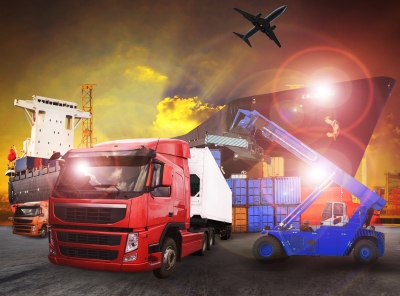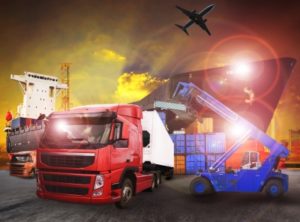Higher consumption and the construction of needed infrastructure, which are among the expected results from the Philippine government’s tax reform program, will benefit the country’s logistics and supply chain sector, according to an official of the Department of Finance (DOF).
The higher disposable income or higher take-home pay for majority of workers in the country due to the tax reform “means retail will benefit, and if retail benefits then the supply chain downstream will also benefit,” Mitch Abdon, incoming director of the strategy, economics and results group of DOF, said in a presentation during the Supply Chain Management Association of the Philippines’ Supply Chain Outlook 2018 forum on January 26.
Under the Tax Reform for Acceleration and Inclusion (TRAIN)—the first package of the Comprehensive Tax Reform Program (CTRP)—those with annual taxable income below P250,000 are exempt from paying personal income tax, while the rest of taxpayers, except the richest citizens, will see lower tax rates ranging from 15% to 30% by 2023.
The tax reform, Abdon added, will also provide the government a “robust revenue stream” to enable it to deliver on its promise of change, which includes massive infrastructure spending and human development programs “to make sure the economy can compete globally.”
Abdon noted that “poor infrastructure has long been identified as one of the country’s foremost binding [constraints] to growth [as] it limits investment flows, and therefore it limits job generation.”
In a separate statement, DOF said the administration’s Build, Build, Build infrastructure program will shift into high gear this year following the implementation of TRAIN and the roll-out of the first set of major infrastructure projects.
Abdon, meanwhile, said the new excise tax rates on fuel that is used in operations by logistics service providers will have minimal effect on inflation.
She noted that the excise tax on fuel has not been changed since 1997 and the new rates are “just an adjustment due to inflation.”
Abdon said that based on DOF’s estimates, inflation in general will increase by only 0.7 percentage points, with only a 0.1% rise in inflation for transportation. The estimate on transportation, however, is based only on daily average income of jeepney and bus operations in Metro Manila.
And even the second-round effects because of higher demand will push inflation up by only around an average of 0.5 percentage points, Abdon added. Even then the Bangko Sentral ng Pilipinas has enough tools and leverage in case of inflationary risk.
She added that historically, diesel prices, for example, increased by 76% from January 2016 to January 2017, but inflation in food, transportation, electricity, gas, and water prices “did not increase significantly,” with prices going up by only 2.7%.
Other examples, she added, were the times when the value-added tax was raised by 12% in 2012 and prices went up during the oil price shock in 2011, “but despite concerns that these would lead to devastating (decline in) economic growth… history proved otherwise.”
She noted that “the economy and the people are more resilient,” adding the country is now reaping the benefits of increased VAT in the form of low interest rates.
But while estimates show the new excise tax rates will not have a major effect on inflation, cargo transport service providers earlier said the new rates will inflate operational costs and that this will eventually be passed on to stakeholders and consumers.
Last month, the Philippine Liner Shipping Association informed the Maritime Industry Authority that most of its members “will be constrained to impose a cost recovery mechanism, Excise Tax Recovery Charge (ETRC)…” following the imposition of new excise tax on fuel under TRAIN. Shipping lines use bunker fuel for engine and diesel for generator sets. A 2015 calculation by PLSA showed that fuel accounted for 30% of operational costs.
Civil Aeronautics Board executive director Carmelo Arcilla was also quoted as saying a request from airlines for a return of the fuel surcharge was “inevitable” as a result of TRAIN.- Roumina Pablo
Image courtesy of khunaspix at FreeDigitalPhotos.net






